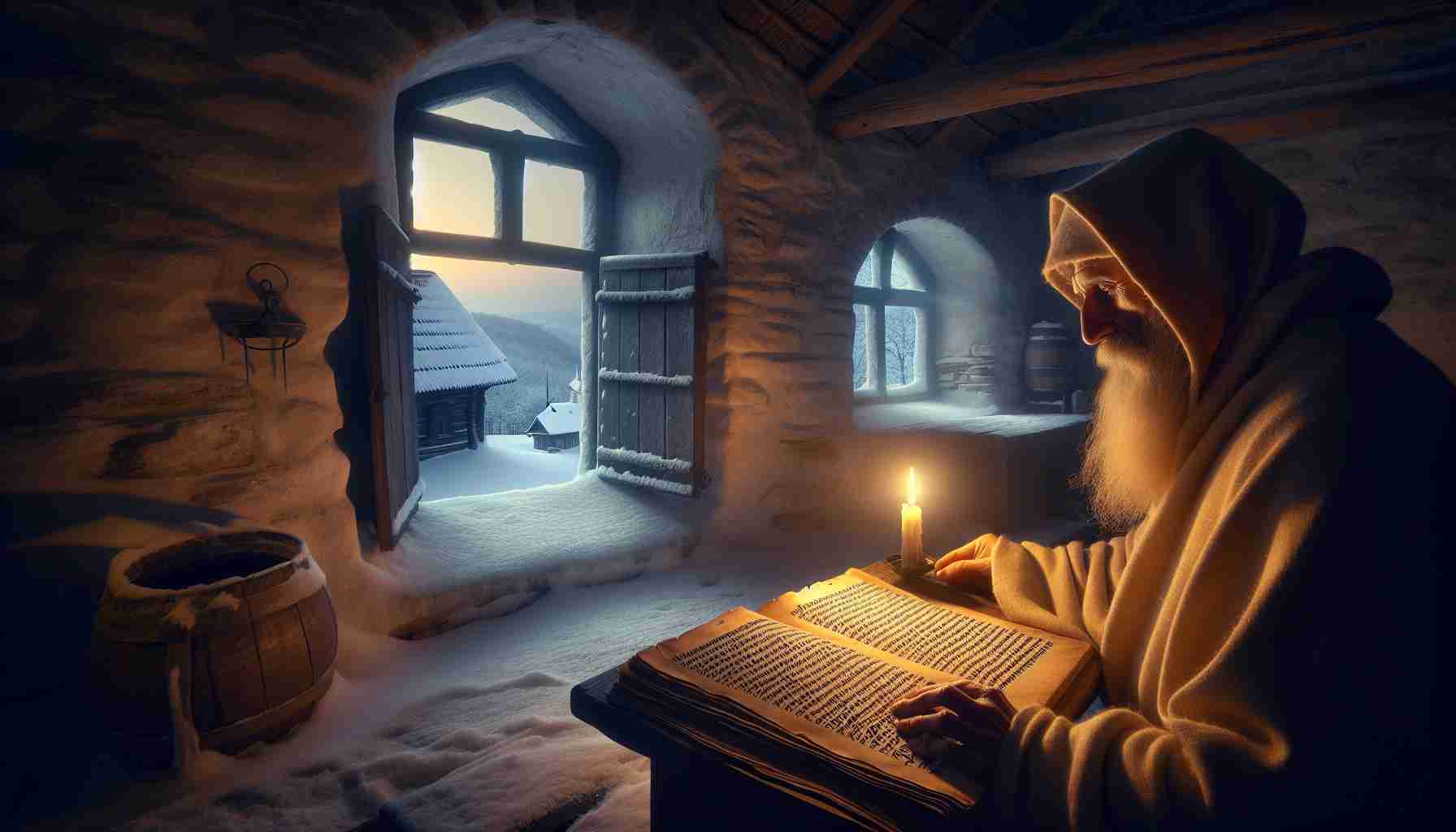

Snow clung to the thatched rooftops of Great Moravia like a prayer refusing to die. In the silent hush of late winter, the bells of the monastery tolled twelve—a deep, resonant echo that carried far over the frozen Danube. The day was June 14, 847, though in this land, where calendars blurred between Latin, Slavic, and Byzantine reckoning, only God counted the days truly.
Inside the monastery's narrow cell, where candlelight flickered over stone, Methodius lay still. The parchment in his hand crinkled as a final breath slipped from between dry lips. It was the last draft of a Gospel verse rendered in the Glagolitic script he and his brother had painstakingly forged—a written bridge from heaven to the tongue of the Slavs.
“…and you will be my witnesses,” it read in their new curved letters, “to the ends of the earth” (Acts 1:8).
His death was quiet, but the path he had walked had thundered with storms.
Years earlier, the brothers Cyril and Methodius had stood before the Emperor Michael III in Constantinople. The Slavic tribes in Moravia had sent word: they hungered for truth in their own speech. The Latin clergy, already lodged like roots in the region, scorned such a request. God, they claimed, spoke only in Latin, Greek, and Hebrew. Yet the emperor, and more importantly Patriarch Photius, saw the Spirit in this endeavor. Methodius, the elder—wise, diplomatic, once a judge—was appointed archbishop; Cyril, the brighter tongue, the scholar.
Travelling northward, they crossed the wilds of the Carpathians, carrying with them neither swords nor silver, only scrolls and ink made from crushed walnut husks. In the Moravian courts, they were welcomed—not because of their imperial roots but because they spoke the people’s words. Methodius, with his solemn strength, sat with elders around fires, listening to their stories. There, he learned that understanding came not through conquest but communion.
For years, they taught by candlelight and memory. Children learned to draw the sacred breath of Glagolitic letters. With each verse rendered, the Word walked further into Slavic hearts. Whole psalms unfurled in voices that had never known scripture not muffled through foreign tongues.
But not all rejoiced.
Latin bishops, insulted by this vernacular heresy, dragged Methodius before papal courts. In 870, he was imprisoned for insubordination to Latin hierarchs—though his only crime was speaking the Gospel in the native tongue. In a dim Roman cell, he carved prayers into the stone walls with a nail, his spirit tethered to the same call Christ gave to His apostles: witness to the nations, not in might, but word and truth.
Pope Adrian eventually freed him, acknowledging—however reluctantly—that to withhold Scripture from any tribe was to deny Pentecost its flame.
In Nitra, he rebuilt his mission. Alone now—Cyril had died in Rome—he bore the weight of their shared vision. Methodius trained Slavic clergy, translated nearly the entire Bible and major liturgical texts. He braved cold and opposition, carrying Christ across hills where warlords still ruled by spear and omen.
And now, in the hush of his death chamber, the snow whispered outside like parchment being turned.
News passed swiftly through the hills and valleys: Methodius was dead.
They buried him in Velehrad, near the basilica he had once consecrated himself. Slavic peasants trudged from villages to lay coarse-woven scarves embroidered with prayers atop his bier. None of them knew the politics of Byzantium or the refusal of Rome—they only knew that in dark huts, by candlelight, the Word of God had come alive in their mother tongue.
Years later, others would come—Latin reformers, empire-bound missionaries—who would scatter the seeds differently. Some would wipe away Glagolitic in favor of Latin scripts. Others would brand Methodius’s work heresy, attempting to erase his script from stone and heart.
But the seeds had taken root. In Bulgaria, in Serbia, in the eastern reaches of Rus’, the Gospel in Slavic tongues blossomed like fireweed on broken ground.
Centuries onward, voices in domed churches still recite scripture in Cyrillic—evolved from those first Glagolitic curves. And on June 14 each year, candles in Eastern rites burn in silent tribute to the man who believed the Word should belong to every people.
The snow melts. Languages shift. Empires fall.
But the letters, once carved by hand in exile, remain.
So does the witness.